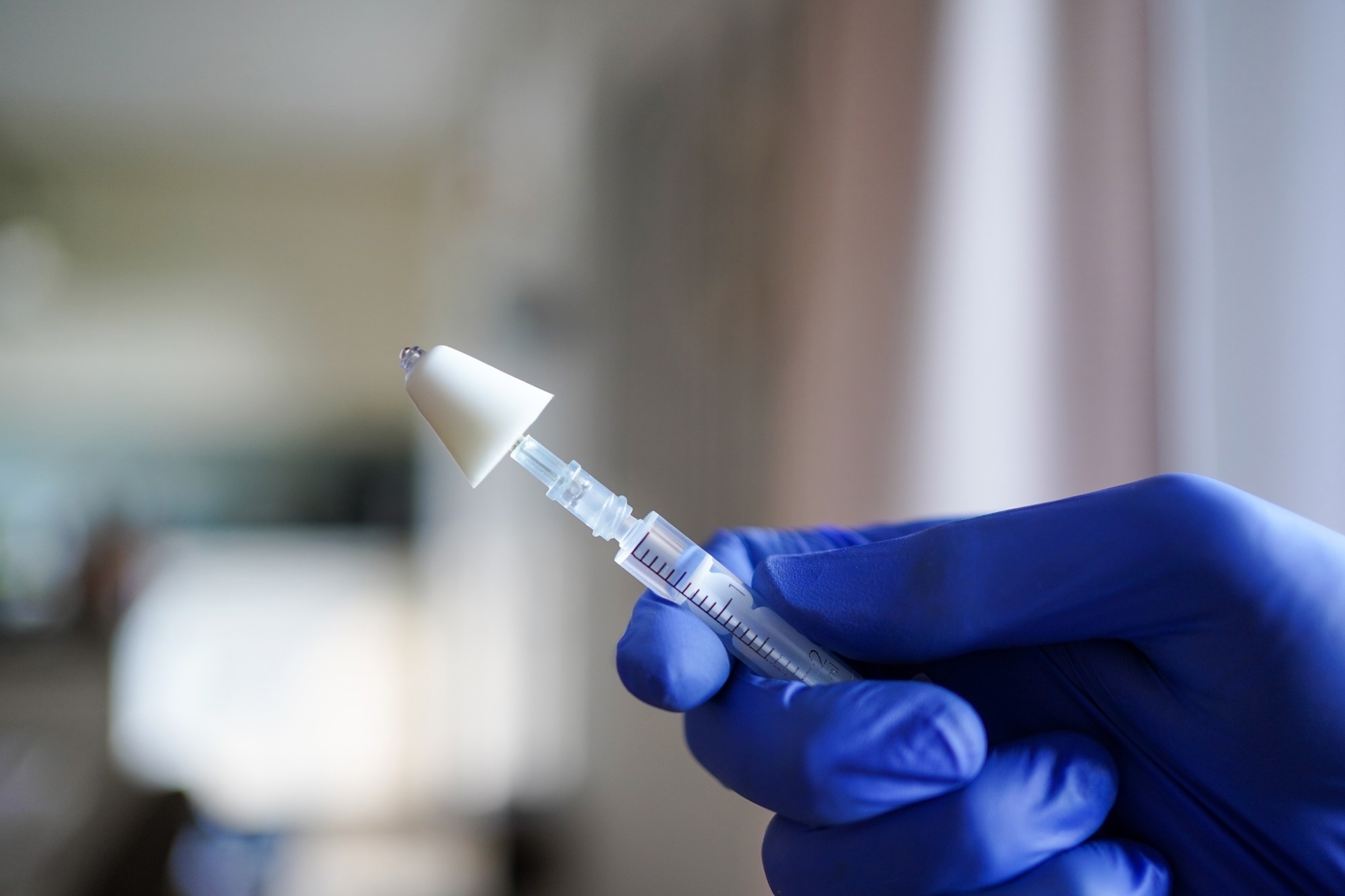In a recent study published in the journal Proceedings of the National Academy of Sciences, a team of researchers from Yale University's School of Medicine and Harvard University used murine models to assess whether intranasally administered neomycin sulfate could evoke antiviral protection against respiratory viruses such as influenza A and severe acute respiratory syndrome coronavirus 2 (SARS-CoV-2) by inducing the expression of ISGs or interferon-stimulated genes.
 Study: Intranasal neomycin evokes broad-spectrum antiviral immunity in the upper respiratory tract. Image Credit: TG23 / Shutterstock
Study: Intranasal neomycin evokes broad-spectrum antiviral immunity in the upper respiratory tract. Image Credit: TG23 / Shutterstock
Background
Respiratory viruses are a group of pathogens belonging to numerous viral families and present a serious threat to human health, primarily because they transmit through droplets and aerosolized respiratory secretions. The gravity of the threat from respiratory viruses was highlighted by the coronavirus disease 2019 (COVID-19) pandemic, where SARS-CoV-2 claimed close to seven million lives across the world and infected over 700 million people. Additionally, influenza viruses are responsible for annual global mortality and morbidity counts of 500,000 and five million cases, respectively.
However, despite significant advances in developing vaccines and therapies against respiratory viruses, these pathogens remain a serious public health concern. The availability of medicines to treat respiratory viral infections is also inequitable worldwide. Furthermore, most treatment options such as antivirals, immunomodulatory agents, convalescent plasma therapy, and monoclonal antibodies only mitigate the progression of the disease once the infection has been established and are not used as prophylaxis or treatment to arrest the infection before it progresses into the lower respiratory tract.
About the study
In the present study, the researchers investigated whether the intranasal administration of neomycin sulfate or neomycin in mice evoked protection against influenza A virus and SARS-CoV-2 by inducing the expression of ISGs. Neomycin is an aminoglycoside antibiotic that can induce the expression of ISGs. ISGs are effector proteins activated by interferons (IFN) and hinder the viral life cycle, protecting against viral infections.
Respiratory viral infections often become severe because of the inability of the host to induce timely ISG responses in the upper respiratory tract and clear the virus before it moves to the lower respiratory tract. Furthermore, therapeutic strategies to mount an ISG-based immune response against respiratory viruses in the nasal mucosa and the upper respiratory tract have also not been adequately explored.
Here, the researchers explored whether intranasally administered neomycin also blocks the transmission of the virus in mice models and whether topically applying Neosporin, an antibiotic ointment containing neomycin, can induce the expression of ISGs in human nasal mucosa.
Mice were intranasally treated with a 2mg dose of neomycin, and the nasal turbinate tissues were collected from euthanized mice and evaluated for ISG expression using ribonucleic acid (RNA) fluorescence in situ hybridization. Germ-free mice models were also treated with neomycin to determine whether the expression of ISGs mediated by neomycin depended on the host's commensal microbiota. The secretion levels of interferon types I, II, and III — IFN-α, IFN-β, and IFN-γ, respectively — in the nasal mucosa were also measured to determine whether the expression of ISGs mediated by neomycin was dependent on activation by interferons.
The murine model of SARS-CoV-2 infection, which expresses the human angiotensin-converting enzyme-2 (ACE-2 receptor, and the murine model of influenza infection were used to assess the prophylactic efficacy of intranasally administered neomycin.
Results
The results reported that the intranasal administration of neomycin, either as a prophylactic or therapeutic option, protected the mice from upper respiratory tract infections and severe SARS-CoV-2 infection. Intranasal neomycin also protected the mice from both upper and lower respiratory tract infections when infected with a virulent influenza A strain.
Neomycin was also found to prevent the transmission of SARS-CoV-2 through contact. Additionally, the application of Neosporin ointment was found to induce ISG expression in the human nasal mucosa, providing evidence that intranasal administration of neomycin could induce ISG expression in humans, potentially protecting against viral infections in the upper respiratory mucosa.
Furthermore, the experiments with germ-free mice showed that the expression of ISGs mediated by neomycin was found to be independent of any role played by commensal bacteria in the host microbiome. Moreover, none of the interferons were induced significantly after intranasal administration of neomycin, suggesting that the induction of ISG expression by neomycin was also independent of interferons.
Conclusions
Overall, the findings suggested that intranasal administration of neomycin in murine models induced robust expression of ISGs, which protect against respiratory viruses such as influenza and SARS-CoV-2. This expression of ISGs is independent of host microbiota or interferon-related pathways. These results highlight the potential of neomycin to be used as a therapeutic or prophylactic agent against respiratory viruses.
Journal reference:
- Mao, T., Kim, J., PeñaHernández, M. A., Valle, G., Moriyama, M., Luyten, S., Ott, I. M., GomezCalvo, M. L., Gehlhausen, J. R., Baker, E., Israelow, B., Slade, M., Sharma, L., Liu, W., Ryu, C., Korde, A., Lee, C. J., Monteiro, S., Lucas, C., & Dong, H. (2024). Intranasal neomycin evokes broad-spectrum antiviral immunity in the upper respiratory tract. Proceedings of the National Academy of Sciences, 121(18), e2319566121. DOI: 10.1073/pnas.2319566121, https://www.pnas.org/doi/10.1073/pnas.2319566121